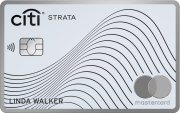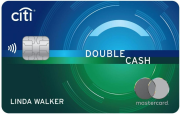The content on this page is accurate as of the posting date; however, some of the offers mentioned may have expired.

Getting a new credit card can be a very exciting experience. There is so much potential in that little piece of plastic. And sadly, if your aged 18 to 24, it is more than likely that the potential plastic will morph into very real debt. According to a report by Credit-Land.com, the 18-24 demographic is approximately $2,002in debt.
Young people in this age group tend to overspend on entertainment items such as clothing shopping in order to stay up to date with the latest trends. They also lack proper money and credit discipline.
Here is some information you should know if you are receiving your first credit card.
If you don’t pay attention to these tips then you may see your credit score dip into the red. Your credit score and the types of credit cards you get approved for are directly correlated. People with higher credit scores tend to get access to lower APR cards with zero annual fees, while people with bad credit scores are subject to higher interest rates and are subject to more fees.
If you are new to getting a credit card, you more than likely will not have any established credit, and therefore will more than likely be approved for a student credit card or a secured card. Student credit cards are a good option if you are in school, because they in a sense keep the training wheels on and allow you to build financial discipline. If your lucky, some cards even come with cash back bonuses, coupons, and other student incentives.
Secured credit cards help people who are already in the credit market, but have poor or bad credit. Secured credit cards are guaranteed approval, because they use a initial down payment to even open the card. Most of them require a security deposit of $200, which will be paid back upon closing of the account. After the account is closed, and the money is returned, the consumer pays the bill and effectively builds their credit.
The Orchard Bank MasterCard is a popular secured credit card. If you choose this route, just make sure to remind the company to send your credit activity to the three credit reporting bureaus.
A new credit card also means new terms and issues to get acquainted with. After the CARD Act of 2009, credit card issuers are required to write credit card contracts in simple, direct language. Please read the fine print, before you sign. When reading through the contract you might run into some jargon that you might find confusing.
Three terms you might not be accustomed to are:
Fees: Highlight anytime the credit contract mentions fees. It’s important to know how much you will be charged while using your credit card and for what. Compare cards and the one with the lowest combined fees should win. Credit card issuers may charge for balance transfers, late payments, or cash fee advances. Steer clear of annual fees, which charge you for simply having an open account. Secured cards may have application and or processing fees that you may have to watch out for.
Rewards: Not every credit card offers rewards, but it is a good thing to look for when combing through the fine print. Some cards offer frequent flyer miles or access to online store. Other cards offer one percent cash back in certain categories, like groceries and gas. Beware of introductory rewards and rates witch usually expire within one year. The more rewards you get, the more fun spending will be.
APR: This is one of the most important numbers included in the credit card application. This is the annual percentage rate, which explains how much interest you will be charged for having a monthly card balance. The lower the interest rate, the better it is for you.







